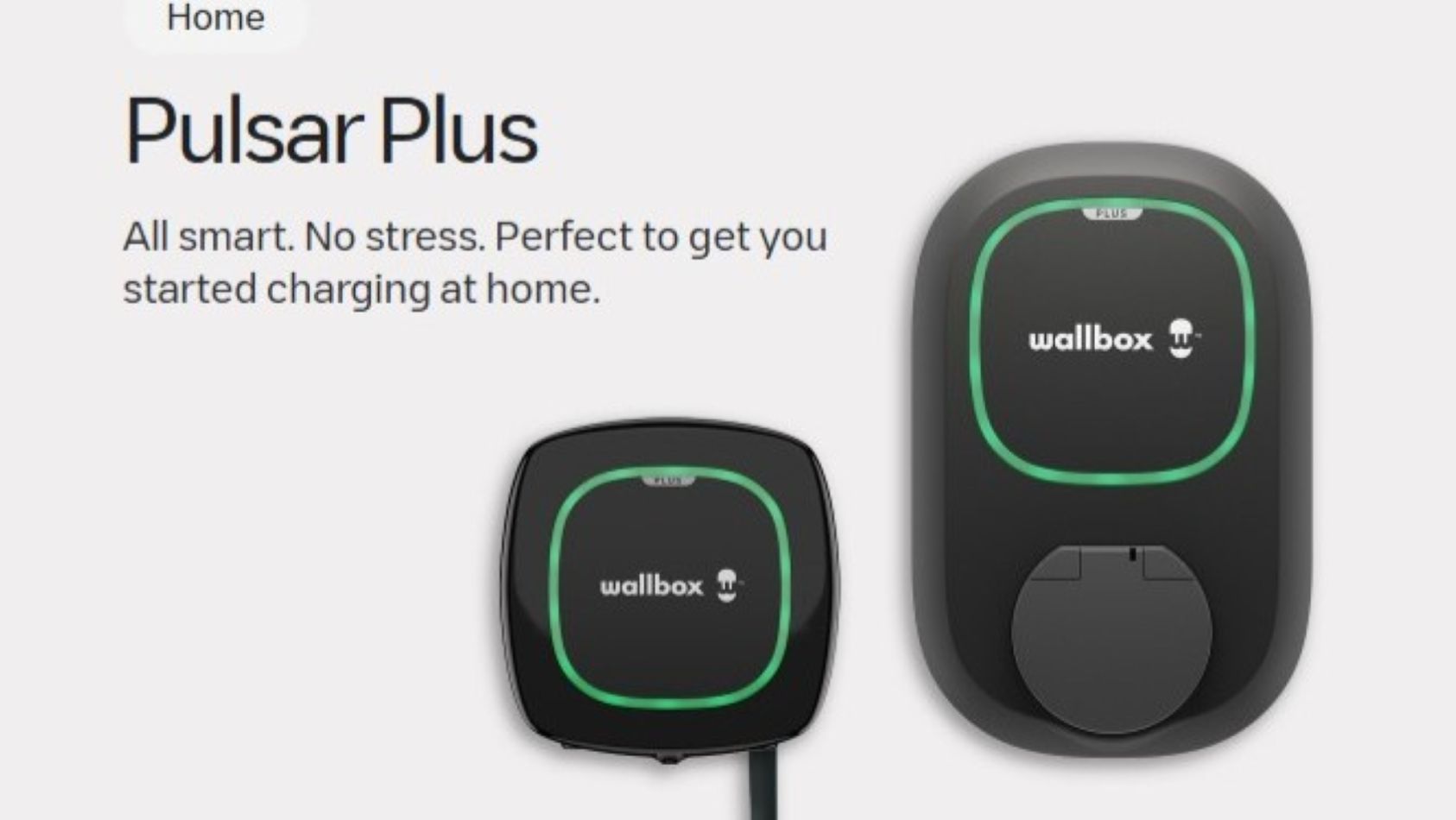New charging, installation partnerships a big part of Nissan Canada’s EV strategy

Wallbox’s Pulsar Plus home EV charger will be available through Nissan Canada's dealers and website thanks to a partnership that's part of the automaker's aim to "take away that fear of the unknown" for first-time EV buyers. Screenshot courtesy of Wallbox.
By subscribing, you agree to receive communications from Auto Remarketing and our partners in accordance with our Privacy Policy. We may share your information with select partners and sponsors who may contact you about their products and services. You may unsubscribe at any time.
Nissan Canada’s latest partnership represents another step in its quest to take the stress out of buying and owning an electric vehicle.
The automaker has teamed with Wallbox, a provider of charging and energy management systems, to launch a nationwide integrated home charging system for Nissan EV owners.
As part of the program, RocketEV, a Canadian-based network of certified electricians, will provide professional installation services as part of what Nissan calls a “one-stop shop experience” for new and existing Nissan EV drivers, designed to simplify home charging and make it more accessible to a broader audience.
Starting in May, Nissan EV owners in Canada can purchase Wallbox’s Pulsar Plus home charger and schedule installation through their local Nissan dealer or directly via the Nissan Canada website.
“Our goal is to make home charging effortless and accessible for every EV driver,” Wallbox chief business development officer Douglas Alfaro said “Together with Nissan, we’re helping shape a future where owning an electric vehicle is simpler, smarter and more connected to people’s everyday lives.”
That’s also a goal of Nissan Canada. It’s why the company added the Wallbox deal to a similar collaboration with EV charging network FLO, launched in 2023.
Subscribe to Auto Remarketing to stay informed and stay ahead.
By subscribing, you agree to receive communications from Auto Remarketing and our partners in accordance with our Privacy Policy. We may share your information with select partners and sponsors who may contact you about their products and services. You may unsubscribe at any time.
“The overarching umbrella of our activities have been around taking out all the friction points and pain points of converting into the EV world,” Nissan Canada director of dealer network development, electrification and corporate strategy Andrew Harkness said.
“Adding a second high-quality product into our lineup gives customers choice on our e-commerce store or at the dealerships, so when they are shopping for that EV, or they are making the purchase, they can install charging at home to be able to leave every morning with a full tank of electricity in their car.”

Andrew Harkness
Harkness emphasized the second part of the new partnership — RocketEV’s installation — is just as important as the equipment.
“The other element, which was the missing link was, OK, I bought a charger, but I can’t install it myself. Who’s going to install it for me? So we’re taking away that fear of the unknown by saying, listen, we can connect you here.
“And that takes away all the fear and the unknown on the complicated electrical stuff. We’re just trying to remove barriers and make it frictionless and easy to own and enjoy an EV.”
For Nissan Canada, removing that fear of the unknown is a top priority when it comes to EVs, and the solution is simple: education.
“If I can contrast two storylines, if we came out with an all-new gas-powered Nissan Pathfinder, I’d have to educate dealers on the unique selling features, on what is specific to that car,” Harkness said. “But I wouldn’t really have to teach them how they’re going to go fill it with fuel or where they’re going to find fuel stations. People’s habits have formed over decades on how to operate a, ICE-powered car.
“Operating a battery electric vehicle is different, and without the proper education, it can make for a scary experience. Those who find themselves running out of range, not having left with a full charge or unable to use or find the tools they need to find public charging… It makes for a scarier experience.”
Nissan’s answer is a certification program for its dealers to give them the information and tools to help their customers understand the differences that come with EVs and how to handle those issues.
Harkness said 70% of Nissan dealerships are certified for EVs.
“It was very important for us to bring our Nissan network up to speed on how to alleviate those fears and dispel the myths and educate the customers on the right things to do,” Harkness said. “Every dealer selling electric vehicles is certified. Their technicians know how to work on the car safely. Salespeople know how to ask the right questions and promote the right behavior to make it worthwhile.
“The salespeople are trained on how not only to sell the values of the product but also the ecosystem around the car to be able to ask the right questions of the customers on how they were going to use it to make sure this is the right vehicle for that customer. Then they can suggest the right charging applications and home chargers, etc. And now in their toolbox of things they can recommend, they have this fantastic Wallbox product as well as the installation services that can be set up straight from the dealership floor.”
The dealer certification, customer education and charging partnerships in Canada’s current EV market, which Harkness described as “volatile”. But one thing he said is clear is the percentage of EVs on the nation’s roads will continue to grow in the future, though the rate of that growth is still uncertain.
“If you look at the Canadian federal mandate, we’d expect for calendar year 2026, we’d be at 20% of our vehicle sales electric, by 2030, we’d be at 60% and 2035 would be 100%,” he said. “The speed at which the consumer adopts that is still in flux, but the quality of the vehicles that are coming out and the way the technology is advancing is definitely making that more and more attainable every day moving forward.
“Once customers have tasted the performance, the silence, the simplicity of a battery electric vehicle, they’re extremely likely to stay in one because they recognize that this is the propulsion of the future. We are forecasting continued increased demand, and we have new exciting vehicles coming our way that will feed into that demand.”
In the meantime, Harkness said Nissan’s overarching strategy “resides in choice,” including EV’s gas vehicles and coming in the 2026 model year, its first North American hybrid offering — a plug-in hybrid version of the popular Rogue compact SUV.
“So as we continue to offer new battery electric variants for those consumers ready to make the jump, we will have excellent options there for ICE-powered vehicles,” he said. “There are lots of consumers who want a fuel-efficient ICE-powered car.”
The Rogue PHEV, he said, “will complement the choice we have to offer to our consumers. Without pegging exactly where demand will be for EVs, by offering customers the choice of powertrain, we’ll have something for everybody.”


